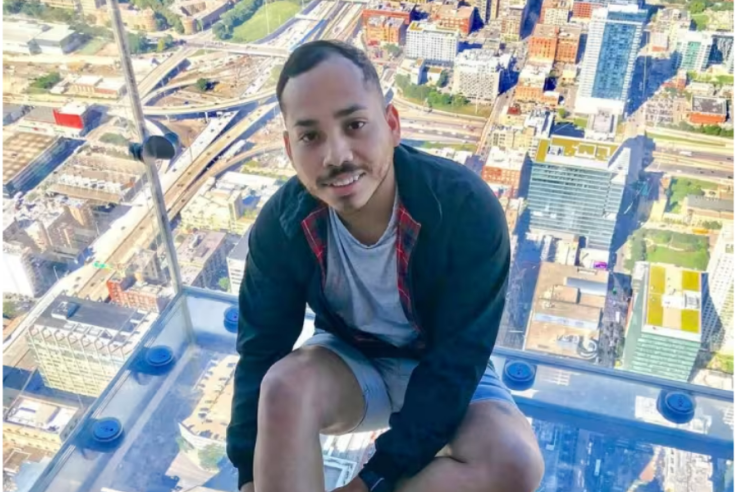
When Pedro Colorado first arrived in the United States at age seven, he, his sister, and their mother settled in North Carolina, where they built a new life before eventually moving to Texas.
Concerns about his immigration status and fear of being detained in an immigration center if arrested triggered a depressive episode that eventually led Pedro to leave his family and belongings behind and return to Mexico.
But as Noticias Telemundo reported, his stay in Mexico lasted only a few days. Just four days after arriving from Texas, Pedro was found dead by his best friend inside the apartment he had rented in Mexico City.
"We're all heartbroken. My mom is doing very badly," Reyna Colorado, Pedro's sister, told Telemundo. "He was very loved by everyone in the community."
According to Reyna, Pedro had struggled with depression since his teenage years due to difficult experiences as an undocumented immigrant and had a history of substance abuse. In the nine months before his death, she said, Pedro had been sober and seemed stable.
However, increased immigration raids and crackdowns since Donald Trump's return to the White House caused him to relapse and prompted him to self-deport.
"He got anxious about being alone, about not being accepted," Reyna said. "He had a relapse here and said, 'If the police arrests me, they'll deport me anyway — I'd rather leave on my own and try to start something new in Mexico.'"
Before self-deporting, Reyna said Pedro had been diagnosed with depression, but they lacked the resources to pay for medical treatment and did not seek government support because of his legal status.
"Depression wouldn't let go of him. We tried to help, through church, through us. He would sometimes disappear for days, even a month, not leaving his room, not eating, and losing a lot of weight," she said.
When he returned to Mexico, Reyna said her brother seemed happy at first, but a few days later, he changed. He stopped answering family calls until Mauricio López, Pedro's childhood friend and a migrant rights activist who also self-deported during Trump's first administration, called the family to inform them of Pedro's death.
"He looked very happy, honestly, and I was happy too because I was going to help him. He had a place to live, he had me. But I think the hardest thing for him was being separated from his family," López told Telemundo. "Unfortunately, I didn't see the signs."
According to investigations by the Mexico City Prosecutor's Office, Pedro's body showed no signs of violence or trauma, ruling out intentional homicide. Authorities told Noticias Telemundo that the cause of death remains under investigation.
The death certificate and medical report obtained by the outlet stated the cause of death was pulmonary edema (acute lung failure), and initial examinations found no evidence of traumatic injuries, prompting an autopsy.
The voluntary or forced return to Mexico has a severe impact on the mental health of migrants, activists and migrants told Telemundo.
"You lose everything," Daniel Batista, 30, who has been deported twice, most recently in 2024, told Telemundo. "I went through a lot of sadness. I have my grandparents, parents, and children there, my whole life. I grew up there, and I came to a new world. I was depressed."
Israel Concha, director of the migrant rights group New Comienzos and a deportee himself, said the first months back are extremely difficult and many suffer episodes of depression.
"Put yourself in these people's shoes. Mexicans who lived undocumented in the U.S. all their lives, proud and eager to legalize their status," Concha said. "With Trump's second term, it's been terrible for our community, we're persecuted, and where is the mental health support?"
Amid the surge in deportations since January, the Mexican government launched "México te abraza" ("Mexico Embraces You"), an initiative led by President Claudia Sheinbaum that provides social services, transportation, job placement, and a prepaid card with $98 for personal expenses for people deported to Mexico.
But as Telemundo noted, the program does not offer mental health support. The outlet asked Mexico's Foreign Ministry about Pedro's case and whether they plan to provide mental health resources for deported migrants in the future, but received no response.
© 2025 Latin Times. All rights reserved. Do not reproduce without permission.







